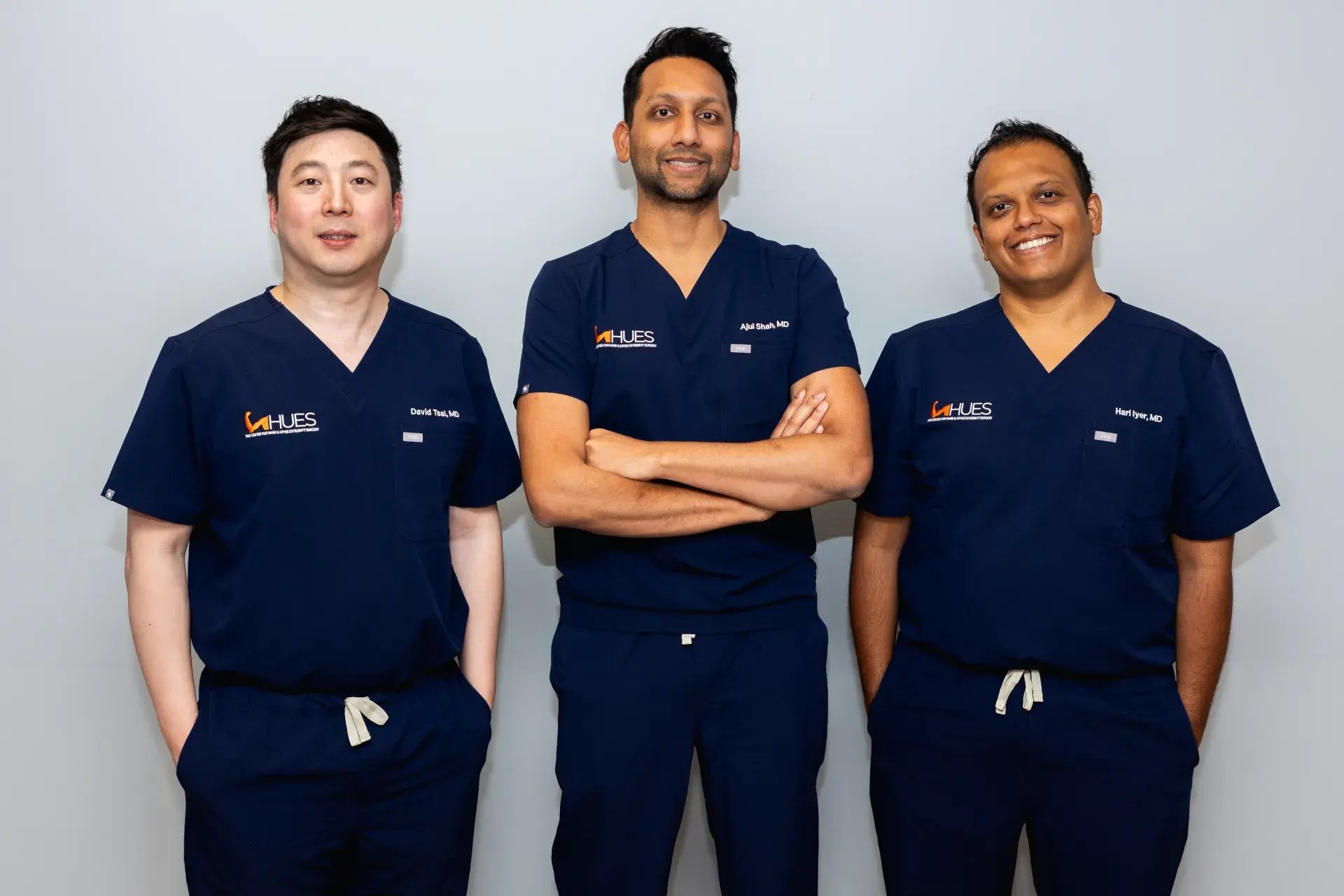Ajul Shah
MD, FACS
Hand & Upper Extremity SurgeonDouble Board Certified in Plastic Surgery and Surgery of the Hand

Conditions Treated
Hand reconstruction techniques allow patients to regain mobility, strength, and appearance when severe injuries would otherwise result in permanent impairment. Unlike simpler surgical fixes, complex reconstruction can comprehensively restore multiple structures simultaneously.
Patients can expect a thorough pre-operative assessment. This might involve discussions with the surgical team, finalizing the surgical plan, reviewing pre-operative instructions, and completing any necessary paperwork. Patients might also be advised about dietary restrictions, medications, and other preparations needed before the surgery. It's crucial to follow the surgeon's instructions diligently to ensure a smooth surgical process.
During hand reconstruction surgery, the patient is typically under general or regional anesthesia to ensure comfort. The procedure involves meticulous techniques tailored to the specific needs of the individual. Surgeons might perform tissue transfers, nerve repairs, tendon re-arrangement, bone realignment, joint reconstruction, or other procedures as indicated by the patient's condition. Microsurgery might also be utilized for intricate repairs, often involving specialized tools and a high level of precision. The surgery can take several hours depending on the complexity of the reconstruction required.
Immediately after hand reconstruction surgery, patients are moved to a recovery area where they are monitored closely as they wake from anesthesia. Pain management and monitoring for any immediate complications are priorities during this period. Depending on the extent of the surgery, patients might have bandages or splints on their hands. Post-operative instructions about wound care, medications, physical therapy, and follow-up appointments will be provided. Rehabilitation and healing timelines can vary, and it's essential to follow the surgeon's guidance diligently for optimal recovery.
The recovery process after hand reconstruction surgery is typically staged, beginning with a period of immediate post-operative care focused on pain management, wound healing, and monitoring for any complications. In the initial weeks, patients might experience swelling, discomfort, and limited mobility. Physical therapy or occupational therapy often begins early to aid in restoring hand function, improving range of motion, and gradually strengthening the hand muscles.
As the weeks progress, the focus shifts toward regaining functionality. Patients may gradually start using their hands for basic tasks under the guidance of their healthcare team. Follow-up appointments with the surgeon are essential to monitor progress and adjust the rehabilitation plan as needed.
Who underwent complex surgery to reconstruct her hand after a traumatic accident.
Linda Scanlon severely cut her hand in a miter saw accident in July 2020, requiring Dr. Shah to perform a 3.5-hour surgery to repair the extensive damage. After following Dr. Shah's treatment plan along with hand therapy from Alta Fried, Scanlon regained good motion and use of her hand over the next year.
Visit our Patient Resource Center online to access useful information such as intake forms, tips for your first appointment, ways to prepare for surgery, and more.
Risks may include infection, bleeding, nerve damage, stiffness, or failure of the reconstruction. Discussing these risks with your surgeon before the procedure is essential.
Recovery timelines vary depending on the complexity of the surgery and individual healing. It can range from several weeks to months, with full recovery potentially taking up to a year, or longer.
Complete recovery and restoration of function depend on various factors, including the extent of damage and the success of the surgery. Physical therapy and rehabilitation significantly contribute to maximizing hand function.
Hand reconstruction surgery is typically performed under general anesthesia or regional anesthesia, depending on the specific procedure and patient's condition.
Depending on the condition, non-surgical options such as splinting, physical therapy, or medications might be considered. However, in many cases, surgery is the most effective option for significant hand reconstruction.
Insurance coverage varies based on the type of insurance and the specifics of the procedure. It's crucial to check with your insurance provider to understand coverage, including pre-authorization requirements and potential out-of-pocket costs.
Return to daily activities and work depends on the nature of the surgery and individual healing. Your surgeon will provide guidance on gradually resuming activities based on your progress.
Depending on the extent of the surgery and individual progress, some patients might benefit from ongoing therapy to maintain hand function and strength.
While surgery aims to improve appearance and function, complete elimination of scars or deformities might not always be possible. Your surgeon can provide realistic expectations based on your case.

Lorem ipsum dolor sit amet, consectetur adipiscing elit, sed do eiusmod tempor incididunt ut labore et dolore magna aliqua.